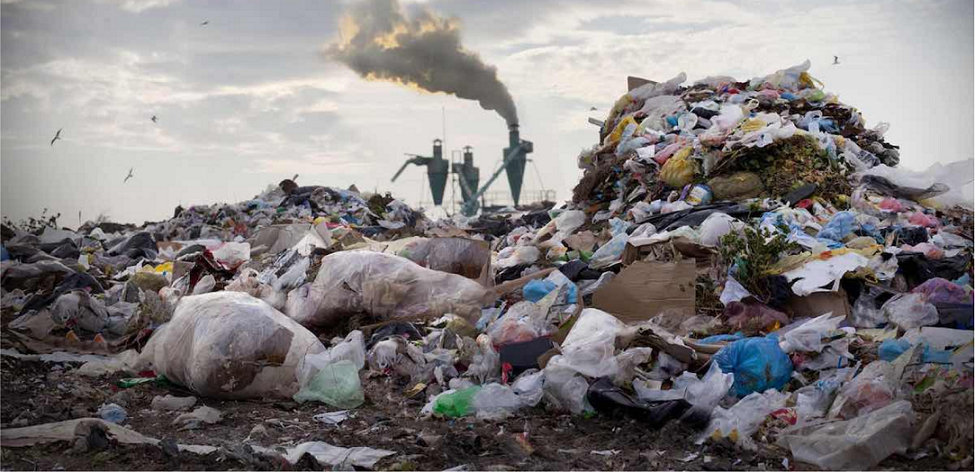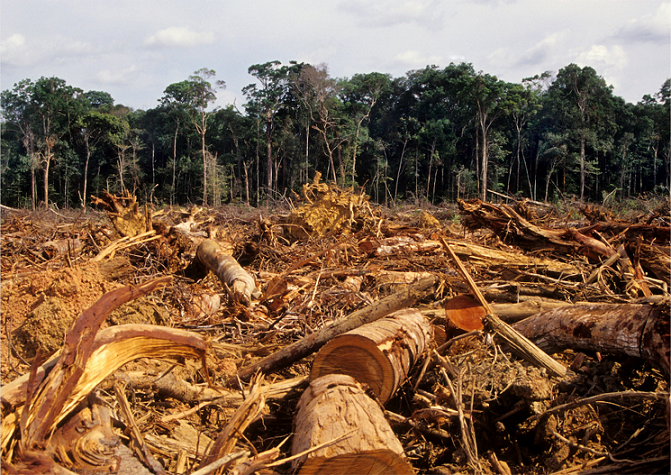EFE WAS A FARMER in a small-town community; he planted green leafy vegetables, red sweet tomatoes and medium-sized tubers of yams. Every planting season, in a bid to prepare his land for cultivation, he would clear out the weeds, put them in a pile, strike a lighter and watch the heaps of grasses burn in a silent offering to the gods of the land as he prayed for a bountiful harvest.
However, it seemed the gods were angry, Efe’s harvest in recent years had been rotting yams and yellowish tomatoes that no one wanted to buy. He had done sacrifices and slaughtered countless chickens on the land but it seemed like no one was hearing his pleas for a turnaround. He was confused as to what he was doing wrong.
Like so many other people, Efe’s actions has been a huge contribution to the gradual degradation of the environment. Little behaviours that are destroying the ecosystem bit by bit without anyone noticing, until it causes serious damage, here are a few of them that you should always remember and hold yourself accountable for:
1. CARELESS LITTERING: A lot of Nigerians are guilty of this―you might have been guilty too but now you know better. Littering waste that is supposed to be properly disposed of, indiscriminately around your surroundings is one out of the many habits that create further problems for the environment and the people living in it. Plastic bottles clog up drainage systems/gutters and cause flooding when it rains. Metals and other non-biodegradable waste also do the same as they do not decompose and thereby cause buildup in water bodies, land areas etc. The best way to manage these items is to either reduce their use, dispose properly or recycle them.

2. AIR POLLUTION: This has been on the rise in recent decades, the increase of industries around living areas has also contributed to air pollution and caused the production of large amounts of greenhouse gases like methane and carbon dioxide. Big industries are not the only ones guilty, when we burn fossil fuel in our cars, generators and indiscriminately burn waste, these are also factors that bring about air pollution. The polluted air in these areas causes its surroundings to be covered by smog or black soot as often seen in Port Harcourt.
3. BUSH BURNING: Farmers and other land users that opt for the cheaper method of bush burning, run the risk of making the land unprofitable in the long run and these actions result in the displacement and even death of rare wildlife and plants in that environment. Activities like this reduce the cover for the earth and also introduces harmful gases to the atmosphere.
4. OCEAN ACIDIFICATION: There has been a rapid increase in CO2 in the oceans which has resulted in intense damage to coral reefs that help to naturally filter the ocean and provide nutrients to organisms underwater. Reports by scientists’ state that a quarter of these reefs have been destroyed while two-thirds of the coral reefs are facing serious harm. Acidification (an increase of CO2) in the ocean is caused by waste disposal and the burning of fossil fuels.
5. DEFORESTATION: Cutting down trees for commercial purposes without replacing them is another major drawback in protecting the environment. Trees provide large amounts of oxygen that are needed by humans and other living species and an increasing lack of it would affect the ecosystem negatively.
6. WATER POLLUTION: Disposing of plastic and metal debris among other wastes that cannot decompose after a long period in water bodies should be a no-go area. Sadly, it still occurs. People and companies go-ahead to dump plastic, metal cans, and oil waste in various water bodies killing aquatic life and poisoning the water sources. This was the case with the Ogoni people, who had petroleum waste thrown into their rivers by the Royal Dutch Shell company; this injustice was fought against by late poet and environmental activist, Ken Saro-Wiwa.
7. USE OF NON-BIODEGRADABLE PRODUCTS: While non-biodegradable products are cheap and mass-produced, they pose a threat to the environment if not disposed of properly. This should lie at the forefront of the mind of any individual that uses them.
“The concept of electric cars is now a reality, the world is going green and it is with these changes the world would recover from the harm, that burning fossil fuels have caused”
8. BURNING OF FOSSIL FUELS: There is a shift now by various organizations and individuals towards clean energy that have renewable sources like air, water, sun etc. rather than the old methods of burning coal, utilizing petroleum-fueled engines or running machines on fossil fuels that contaminate the environment. The concept of electric cars is now a reality, the world is going green and it is with these changes the world would recover from the harm, that burning fossil fuels have caused.
9. APATHY TOWARDS RECYCLING: The disinterest in recycling in this part of the world has also contributed to the damage that the ecosystem is facing. When the public has the mindset of apathy towards the environment no tangible change can be carried out.
“When trees are cut off without replacement, bushes are burned, bodies of water sand-filled just to fit the image of a megacity, the area ends up becoming a testing ground for natural disasters”
10. URBANIZATION: Town planners who are only concerned with the transformation of rural areas to urban multi-cities with no regard for the environment also create problems for the ecological landscape of that area. When trees are cut off without replacement, bushes are burned, bodies of water sand-filled just to fit the image of a megacity, the area ends up becoming a testing ground for natural disasters. This is the situation that occurs during the rainy seasons in several parts of Lekki, Lagos State, Nigeria.
Our environment is changing (for the worse) but our attitudes towards the environment are not. There is a need to reflect and curb these 10 environmentally unfriendly behaviours, individually and collectively.

